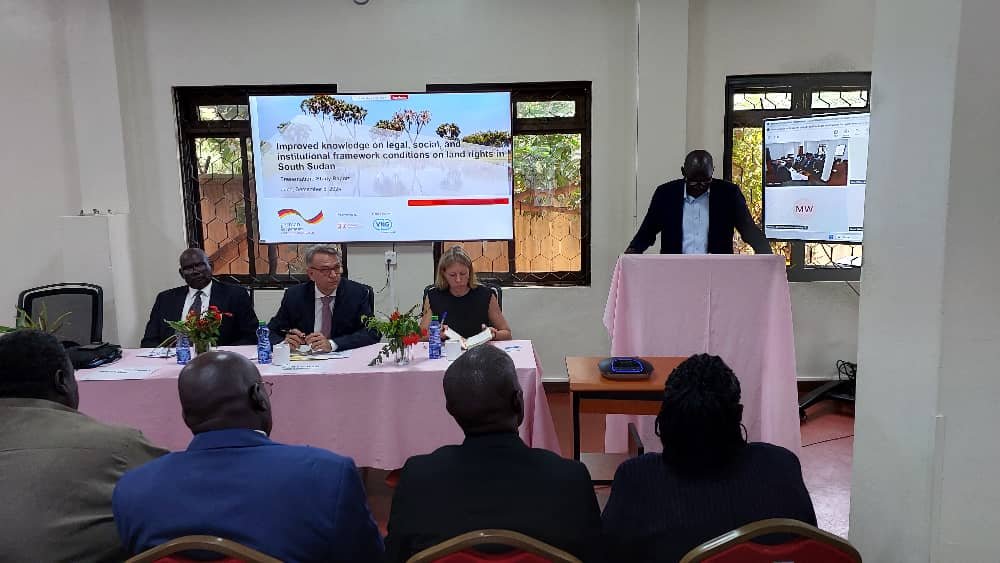By Jenifer James
King News, 13th September Juba – On Friday, the representatives of German Development Cooperation unveiled a detailed report titled “Improved Knowledge on Legal, Social, and Institutional Framework Conditions on Land Rights in South Sudan.” This comprehensive study aims to deepen the understanding of land rights issues in the country, aiding in the development and execution of effective policies.
The report, prepared by VNG International, is based on extensive research, including desk reviews, interviews with key informants, and focus group discussions at both national and local levels. A case study focused on Yei River County offers valuable insights into specific challenges and opportunities in the region.
In his opening remarks, Dr. Björn Niere, the German Head of Cooperation, emphasized the critical importance of land tenure and access in South Sudan, noting that it affects every aspect of life from agriculture to infrastructure. He stressed the need to respect traditional customs while ensuring equal rights for all, particularly marginalized groups and women. “Land rights and the ability to use and own land are essential for the country’s economic growth and sustainable development,” he stated.
Undersecretary Hon. Louis Kwot Akolith highlighted the necessity of coordinated efforts among institutions regarding land rights issues. He underscored that governance is a major factor in achieving sustainable development in South Sudan.
The report reveals that a complex interaction of ownership patterns, government policies, community dynamics, and resource management shapes land rights in South Sudan. Negative customary norms, particularly those impacting gender equality, obstruct the implementation of existing legal frameworks. The Yei River County case study illustrates the difficulties posed by inadequate infrastructure and the limited capacity of local administrative staff.
Esther Obaikol, a VNGI expert, presented the report’s key findings, stressing the importance of tackling these challenges and advancing gender equality in land rights. She called for improved implementation of legal frameworks and better land administration and registration systems.
Following the presentation, a panel discussion took place with government officials, representatives of international organizations, and civil society members. Panelists included Hon. Robert Ladu Luki (Chairperson, Land Commission), Savia Sylvester (Coordinator for Land Units, MLHUD), Hon. Ambrose Lomin (Chairperson, Specialized Land Committee, National Legislative Assembly), Meshack Malo (Country Representative, FAO), and Hon. Louis Kwot Akolith. They discussed the report’s implications for the National Land Policy.
The forthcoming report will cover various topics, including the legal framework, land administration and registration, dispute resolution and conflict management, land use planning and management, gender equality, and social inclusion, as well as a detailed case study on land administration and management in Yei River County. It outlines the challenges and offers recommendations for relevant stakeholders and future development cooperation initiatives.



